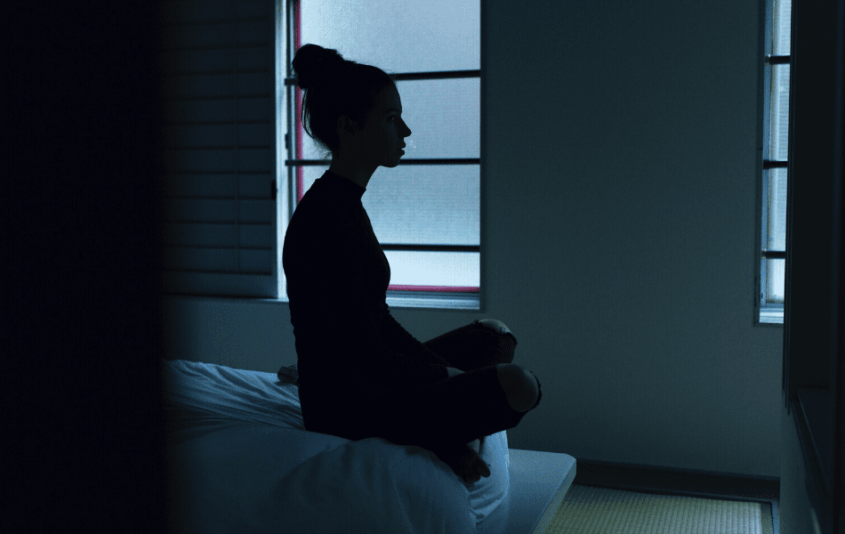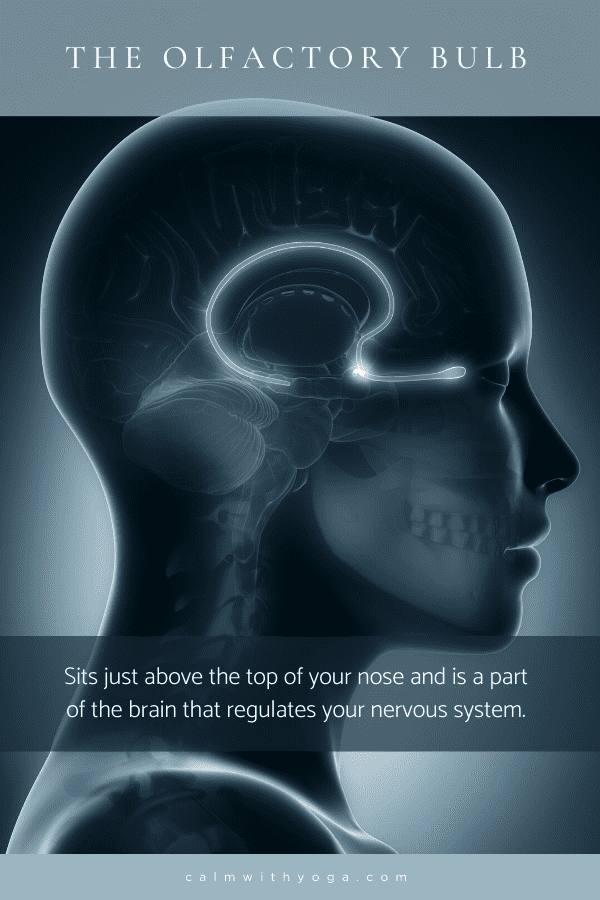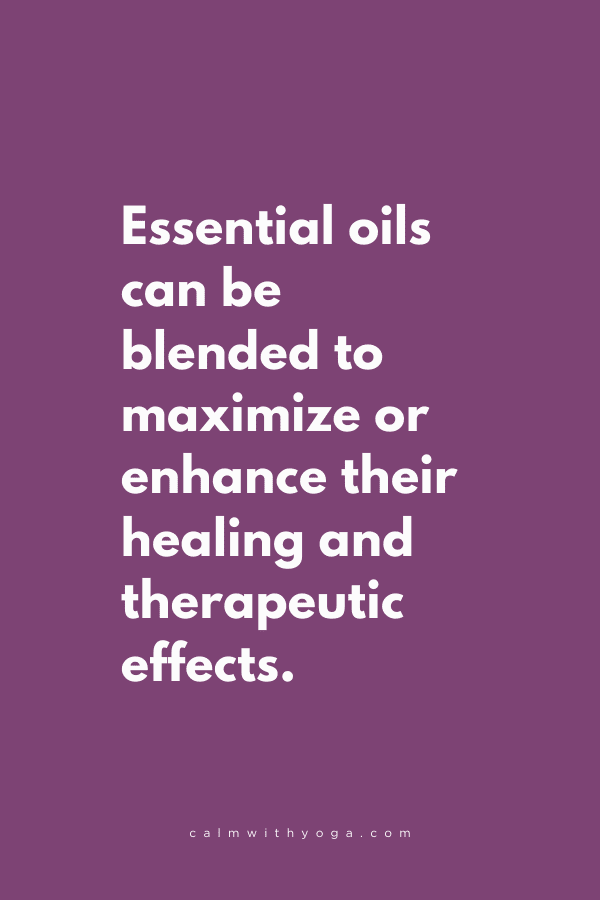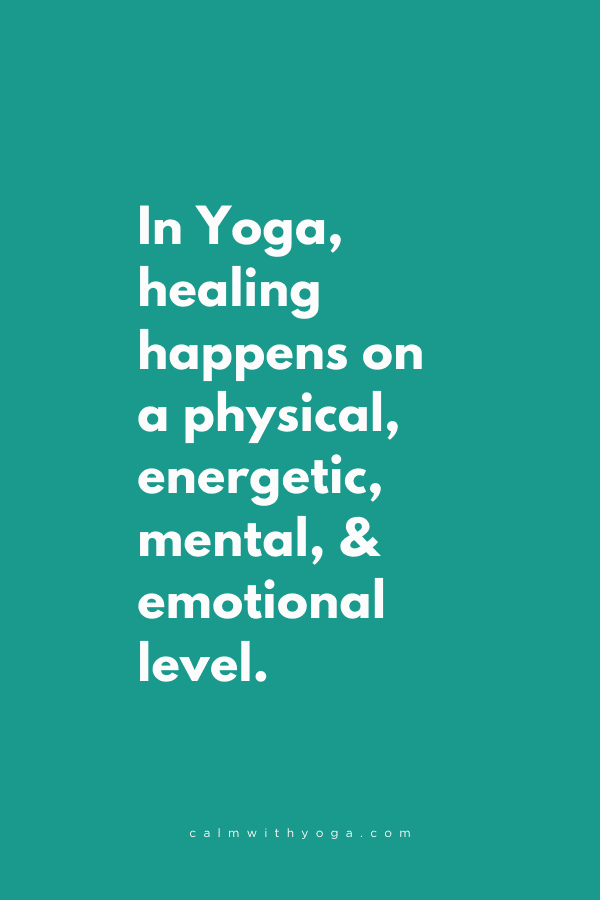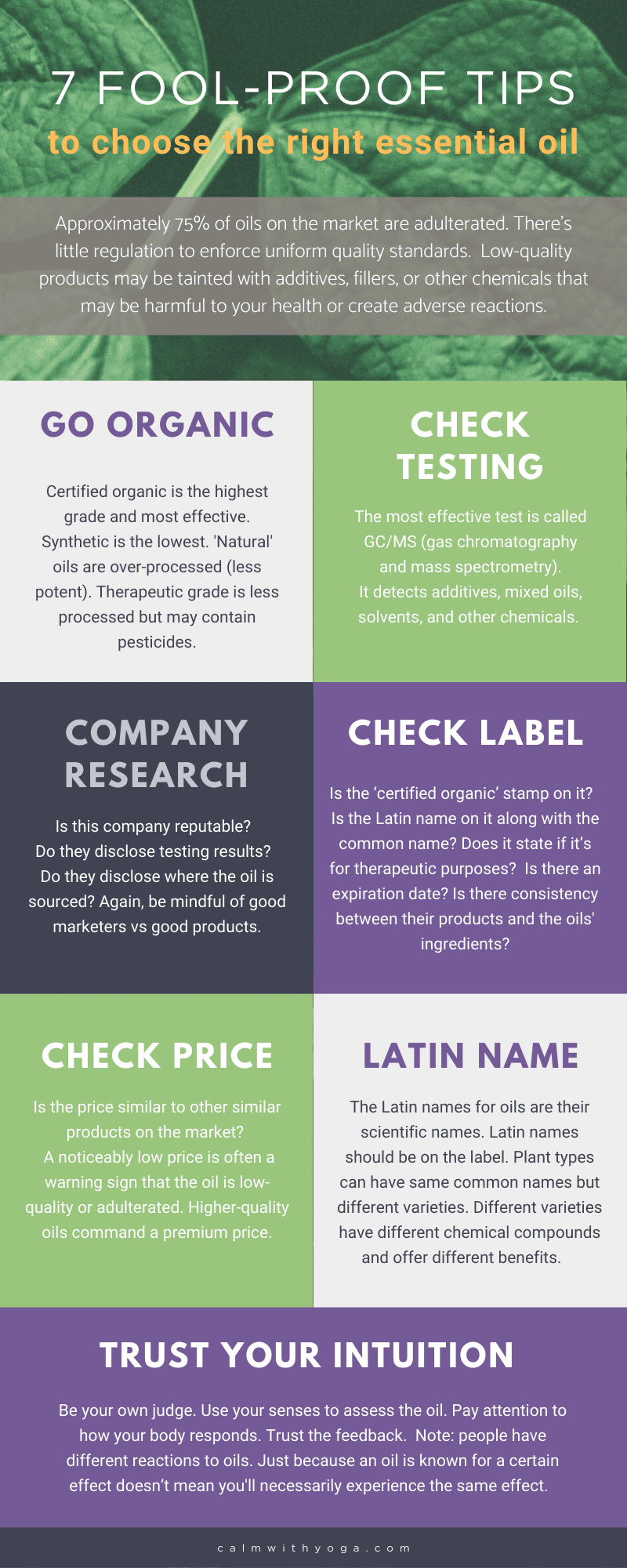Why People Are Turning To Essential Oils for Mental Health
Depression doesn’t discriminate – it can impact your quality of life regardless of age, culture, race, financial status, education level, religion, or gender identification.
It’s estimated that over 264 million people worldwide experience some form of depression at any given moment. (1)
In the United States that translates to 1 in 10 people battling with symptoms and side effects of depression along with other mood disorders like panic attacks and anxiety disorders. (2)
While there are different types of depression (major depressive disorder, bipolar disorder, postpartum depression, seasonal depression, etc.), there are many common symptoms to look out for:
- Persistent feelings of hopelessness and pessimism
- Fatigue and tiredness
- Insomnia or sleep problems
- Loss of interest in things you used to care about
- Loss of appetite or overeating
- Anxiety
- Trouble concentrating or with memory retention
- Irritability
- Withdrawing from relationships
The symptoms of depression may vary from person to person and may even escalate to include suicidal thoughts.
If you or someone you know if exhibiting a high risk of depressive symptoms it’s best to see immediate help and support whether that be calling the National Suicide Prevention Hotline at 1-800-273-8255, or seeking medical advice or depression treatment.
If you or a loved one are experiencing any of the symptoms just mentioned or even if you’re going through a dark time – know there is hope and there are things you can start doing right now to elevate your mood and get through it.
One simple yet possibly effective natural mood boost is aromatherapy – the therapeutic use of essential oils.
Essential oils (EOs) are highly concentrated plant extracts that come from tree bark and resin, roots, stems, leaves, fruits, nuts, seeds, and flowers.
They’ve been used for healing and well-being for hundreds of years by multiple cultures throughout the world.
You can use EOs to help boost immunity, manage headaches, colds, allergies, and pain relief.
You can work directly with an aromatherapist to help you personalize your use of the oils or you can take a DIY approach.
How Essential Oils Work to Improve Mental Health & Depressed Moods
Over the last decade, we’ve seen a growing focus on EOs as effective ways to improve health and emotional well-being.
Laboratory research shows promising potential for the mental health benefits of essential oils as calming mood stabilizers.
Similarly to using EOs for anxiety, they appear to have a unique ability to interact with the human brain and nervous system in ways that promote vitality and harmony.
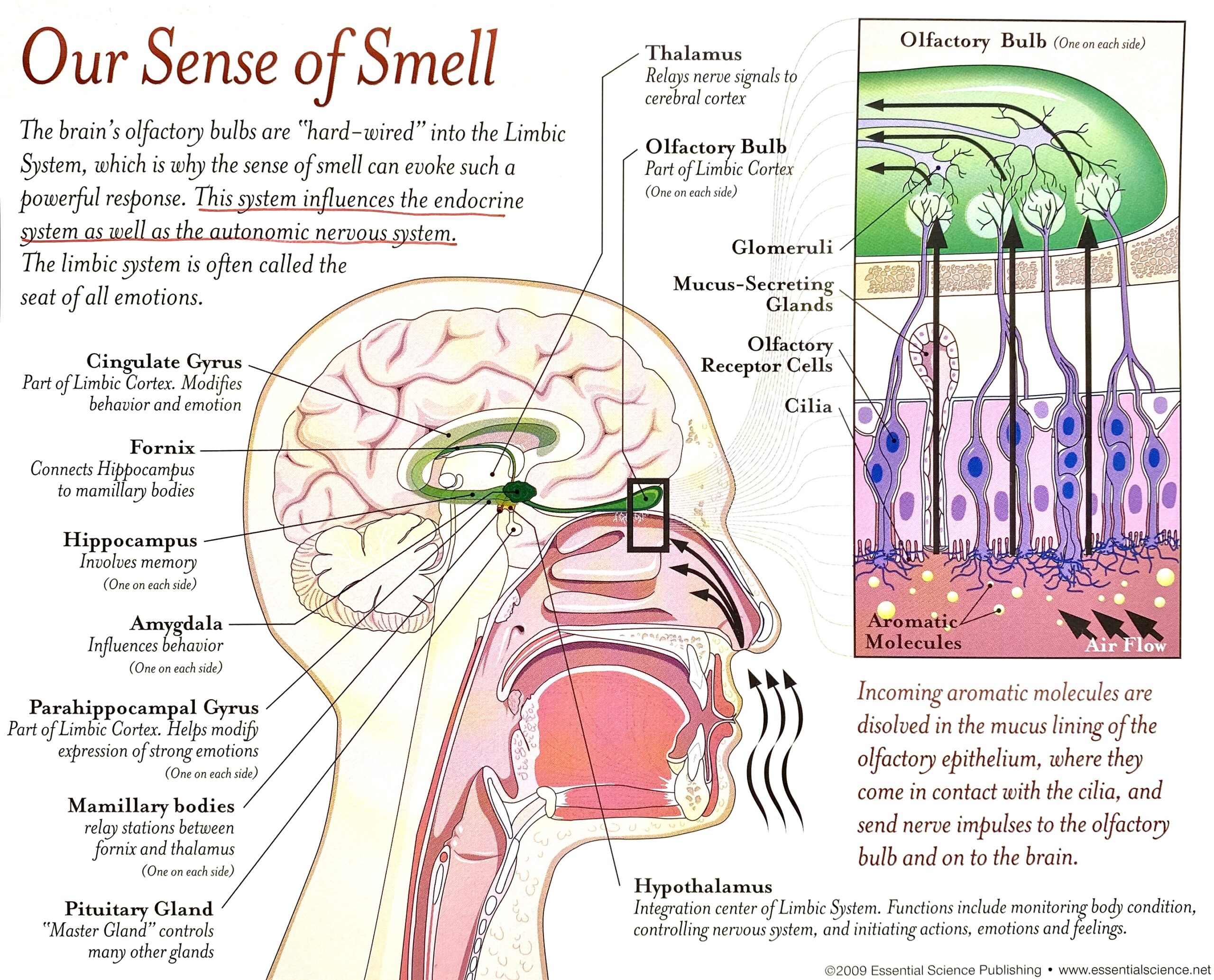
EOs influence the brain via the olfactory bulb which sits just atop the nose.
The olfactory bulb is a part of the brain that connects to your limbic system – the part of your brain that oversees emotional responses like fear and anxiety.
Your limbic system is also responsible for other functions like memory, sexuality, and learning.
This is why it’s common that certain smells evoke certain memories and subconscious thinking.
The limbic system also influences the endocrine system (hormones), as well as the sympathetic nervous system (stress response), and the parasympathetic nervous system (relaxation response).
All of which directly impact depression and anxiety levels.
The 5 Best Essential Oils for Improved Mental Health and Elevated Moods
Essential oils are not a cure for depression.
They can, however, help alleviate some of its symptoms like insomnia and anxiety.
They are most effective if used as addendum tools to other treatment methods from conventional options such as medication and therapy to alternative treatments, which we’ll discuss further in the next sections.
You can use EOs in a massage and applied topically, or inhaled.
Massage helps the oils enter the bloodstream through the skin.
Inhalation helps the oils enter the bloodstream through the lungs while also influencing the brain and nervous system via the olfactory bulb.
A 2017 review published in Evidence-Based Complementary & Alternative Medicine concluded that: (3)
“Aromatherapy showed the potential to be used as an effective therapeutic option for the relief of depressive symptoms in a wide variety of subjects.
Particularly, aromatherapy massage showed to have more beneficial effects than inhalation aromatherapy.”
Here are our top 5 picks for mood-boosting EOs:
Bergamot oil (Citrus bergamia)
Bergamot essential oil has a calming yet uplifting effect on mood.
Studies show bergamot has neuroprotective qualities (protects brain health) which is really important for the management of depression and mood regulation. (4)
Inhalation of bergamot has been shown to activate your body’s relaxation response via the parasympathetic nervous system while also decreasing cortisol (stress hormone) levels. (5)
Ylang ylang oil (Cananga odorata)
Ylang ylang essential oil can help cultivate gratitude and appreciation, which is a simple and yet significant practice for better mental health.
Its fragrant aroma can also help manage mood swings and strengthen emotional balance. It’s also known to relieve nervous tension and fearfulness, as well as help with low self-esteem. (6)
Roman Chamomile oil (Chamaemelum nobile)
Chamomile has long been known for its soothing effects. It can also decrease irritability while soothing the nervous system.
A study published in the journal Alternative Therapies in Health and Medicine found Chamomile to have a ‘clinically meaningful antidepressant activity‘ in addition to being an anxiolytic (anxiety-reliever). (7)
Another study on 80 volunteers found that the inhalation of this oil resulted in a calmer state, balanced mood, and increased ability to achieve deep sleep. (8)
Lavender oil (Lavandula angustifolia)
Lavender essential oil is probably the most well-known EO on the market.
It’s long been used for anxiety, sleep, and even to accelerate wound healing.
A series of clinical trials showed that ingesting 80 mg once a day of steam-distilled lavender oil resulted in reduced restlessness and agitation amongst 221 patients suffering from an anxiety disorder. They also noted improved sleep quality and an increase in general wellbeing and quality of life. (9)
Research also shows that inhaling lavender oil for just 5 minutes can significantly lower cortisol (stress hormone) levels. (10)
Grapefruit oil (Citrus paradisi)
Grapefruit is an uplifting, bright scent that can help you feel more awake and energized.
Some people believe grapefruit to invoke brightness, warmth, and sunshine, which can be particularly helpful with seasonal affective disorder.
Other oils that may be helpful:
- Frankincense
- Cedarwood
- Clary sage
- Peppermint
- Sandalwood
- Geranium
- Vetiver
- Neroli
- Patchouli
- Basil
- Jasmine
The Pros & Cons of EOs for Depression
The Pros:
- EOs are potent – a little goes a long way. For example, did you know that 30 lbs of lavender flowers go into just one bottle? Just a few drops offer multiple active compounds that can boost your mood in a matter of minutes.
- High-quality EOs should be 100% natural. This means you have direct access to nature’s pharmacy and emotionally healing plant wisdom.
- EOs are relatively safe and easy to use as well as cost-effective. When used mindfully and consumed with care, they offer little to no harmful side effects. (Unlike many depression medications.)
- Also unlike pharmaceuticals, you can blend multiple oils together to maximize or enhance their uplifting and soothing effects.
The Cons:
- EOs are potent – misuse or extremely high concentrations can cause them to become irritants, cause an allergic reaction, and may even make your depression symptoms worse.
- There are many adulterated EO products in the market that feature misleading claims and labels. It’s estimated that over 75% of all EO on the market are either diluted or contaminated with synthetic material. (11)
- EOs aren’t a cure for depression. Even though EOs can benefit your life, mind, and emotional well-being in many ways they won’t make your depression or low mood go away on their own. They’re most effective when used in conjunction with other conventional or alternative treatments. (If you’re dealing with serious depression symptoms or suicidal thoughts, please seek immediate help and consult with your doctor prior to using them.)
- Most of the EO research available is done on animal studies and many of the human studies rely on personal subjective experience which can skew results. Though studies seem promising, more research is needed to explore EO mental health and mood benefits further.
Using EOs With Other Alternative Treatments for Depression
Because depression medication sometimes isn’t effective for certain individuals (and because they also come with many harmful side effects), many people choose complementary and alternative medicine (CAM) instead.
Medication side effects can include:
- Nausea
- Insomnia
- Agitation
- Weight gain
- Sexual dysfunction
It’s estimated that around 53.6% of depression patients report using CAM as complementary therapies for the treatment of depression. (12)
Aromatherapy, homeopathy, and acupuncture are examples of CAM.
Other useful habits and lifestyle practices to consider are:
1- Quality sleep
Lack of sleep wreaks havoc not only on your hormones and body function but also on your mood and outlook on life. Aim to get at least 7.5-8 hours of quality sleep a night to support mental health.
2- Diet & Supplementation
What you eat, how you eat, and when you eat greatly impacts your mood and mental state. Try eating lots of anti-inflammatory and vital whole foods while limiting processed and sugary foods, dairy, and gluten. Aim to eat like a yogi and notice how your mood shifts.
3- Forest Bathing & Sunshine
It’s no wonder that low Vitamin D3 levels are linked to depression.
Our body produces its own vitamin D from sun exposure so getting out in nature and being in sunshine literally helps your body boost its own happiness quotient!
Studies have shown that spending time amongst trees and greenery is not only great for our mental health, it also causes a major boost in our immune system.
Forest bathing can increase the count of natural killer cells (NK) in the body. (13)
These cells are essential for immunity and help prevent infections from progressing.
Breathing in nature’s air and mindfully walking in a park or forest or beach has also shown to lower stress hormones such as cortisol. (14)
4- Breathwork
Believe it or not something as simple as your own breath has the power to shift depressive moods. Recent studies indicate that certain breathing exercises and patterns can help ease many depression symptoms. Taking up a daily pranayama (yoga breathing) practice can help you better manage low moods. All it takes is just 5 minutes to begin with.
5- Meditation
Adopting a daily meditative practice can help you feel the sunnier side of life more.
There are many different styles of meditation so the good news is you can choose the one that you most resonate with. This will ensure that you stick with it – even if it’s only for a few minutes a day. You can try breathing meditation, gratitude meditation, mantra meditation, and even chakra meditation.
How To Choose the Right High-Quality EO for Better Mental Health
Since so many of the oils on the market are diluted or contaminated it’s very important to know exactly how to find the best quality one so you reap the full medicinal and therapeutic benefits.
This is especially true when it comes to mental health.
Here are 7 fool-proof steps to help you choose the right oils for your skin:
- Look for certified organic therapeutic grade essential oils.
- Check that proper testing has been done.
- Research the company. Is it reputable?
- Check the label. Is all the relevant information there?
- Check the price. Too cheap is a red flag.
- Check the Latin name. This is the plant’s actual botanical name.
- Check in with yourself. Your body will give you feedback so trust your intuition!
How To Use EOs for Depression
A mentioned you can use EOs in two main ways:
1 – Inhaling (via a diffuser, steam inhalation, or inhalers)
2 – Topically (via direct contact with the skin)
When using oils topically always make sure to dilute your EOs in a carrier oil like coconut oil or sweet almond oil before applying directly on the skin.
To avoid potential adverse reactions be sure to conduct a patch test before and wait 24-48 hours before proceeding.
REFERENCES
:
(1) https://www.who.int/news-room/fact-sheets/detail/depression
(2) Kessler RC et al. Prevalence, Severity, and Comorbidity of Twelve-Month DSM-IV Disorders in the National Comorbidity Survey Replication
(3) https://www.ncbi.nlm.nih.gov/pmc/articles/PMC5241490/
(4) https://www.sciencedirect.com/science/article/abs/pii/S0367326X10000171
(5) https://www.ncbi.nlm.nih.gov/pubmed/25824404
(6) Holmes, Aromatica, 364
(7) https://www.ncbi.nlm.nih.gov/pmc/articles/PMC3600408/
(8) https://www.researchgate.net/publication/229226111_Expectancy_and_the_aroma_of_Chamomile_influence_mood_and_cognition_in_healthy_volunteers
(9) https://www.ncbi.nlm.nih.gov/pubmed/20512042/
(10) https://www.researchgate.net/publication/319923477_Effects_of_Aromatherapy_Using_the_Damask_Rose_Essential_Oil_on_Depression_Anxiety_and_Stress_in_Hemodialysis_Patients_A_Clinical_Trial
(11) Essential Oils Revolution Online Summit, Interview with Robert Pappas, “Essential Oil Preparation”
(12) https://pubmed.ncbi.nlm.nih.gov/18281839/
(13) https://www.ncbi.nlm.nih.gov/pmc/articles/PMC2793341/
(14) https://www.ncbi.nlm.nih.gov/pubmed/19568835


